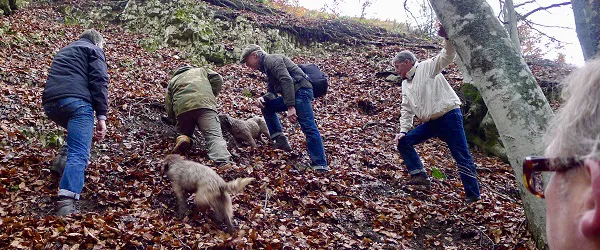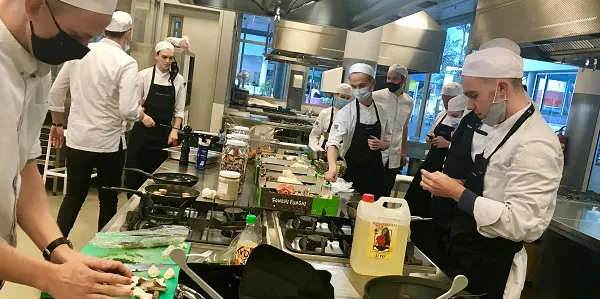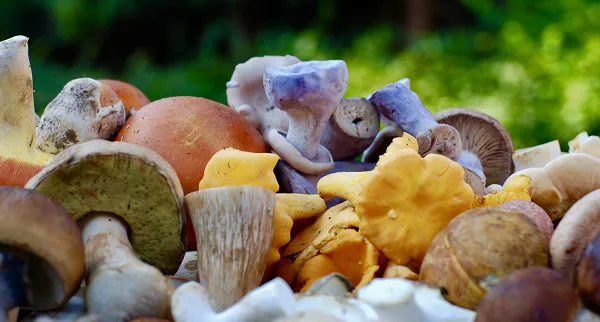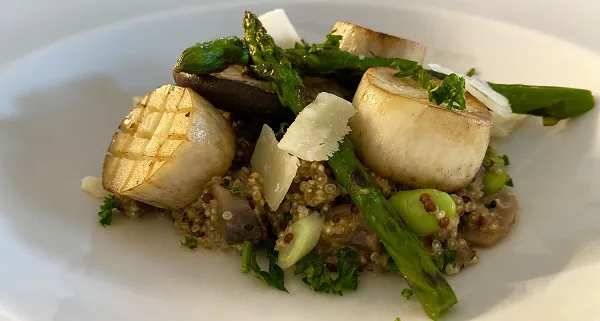"Worldwide, there are 100,000 known species of mushrooms. Of these, few are edible, and even fewer have gastronomic value," explains Leon van Basten of Funghi Funghi. This Belgian company focuses on diverse edible mushrooms. Its annual range has about 70 different wild and cultivated mushroom varieties. These eventually find their way to the international hospitality industry. "All these mushrooms are unique in terms of flavor, aroma, shape, and color."

'Truffle hunt' together with customers
"In the search for culinary novelties and possibilities, mushrooms offer chefs a lot of scope. But they're not well-known. And what's unknown is unloved. There's still so much to discover." Funghi Funghi has made it its mission, under the motto 'Helping to discover', to surprise and inspire people. "Our biggest challenge, communication-wise, is to help people discover all the wonders of the edible mushroom world."
Information
"We do everything we can to assist and inform end-users. Our customers are mainly traders. So, for example, we tell them about every day's supply. Then restaurant chefs know what to expect," Leon explains. Their weekly newsletter includes weather forecasts in the mushroom regions of origin too. Supply volumes can then be estimated.

Leon says that in the Balkans, for instance, it was very dry and hot, which hinders mushroom growth. "Our suppliers monitor the forest mushrooms' status. They can then tell clients what their harvest periods and quality will be." The newsletter also shows what the following week's assortment will include. Restaurants can then adjust their menus accordingly.
The company's range includes wild and cultivated mushrooms. But it has fresh mushroom mixes, dried and frozen mushrooms, and seasonings like mushroom powder. Also, they hold cooking workshops, presentations, and other workshops. Then there are excursions and tastings, all for people like chefs and students. These contribute to helping people discover edible mushrooms' possibilities.
Flavor
Consumers are becoming increasingly interested in mushrooms. Reason enough for Funghi Funghi to keep an eye on market developments. That is for, say, meal boxes and takeaway meals. They also consider a 'mushroom solution' that fits these markets. The focus on a more plant-based diet is helping. But, when it comes to edible mushrooms, there are barriers among consumers, Leon says. "People are still a little afraid of eating mushrooms, which is a fungus, after all. That's clearly seen in the limited variety of mushrooms offered in supermarkets."

In Mediterranean countries, people are more focused on flavor, and the supply is greater there. Price plays a role in the Dutch assortment. White mushrooms do not take long to grow, so they are relatively inexpensive. Leon compares them to green bananas. He says the mushrooms' closed cap is why they are quite flavorless. "Open-capped mushrooms are tastier; they're ripe'. Then you can taste the forest, nuts, and umami. Even in 'ordinary' white mushrooms. But it takes longer to cultivate open-cap mushrooms, which increases the price."
Wild
The Funghi Funghi range's focus rests on wild mushrooms. They follow the season when purchasing chanterelles, for example. That begins in Turkey and Greece; the Balkans, Belarus, the Baltic States, and Sweden follow. As the season draws to a close, it is France, Portugal, and Spain's turn. "At certain times, the quality is at its very best in a particular area." To assess that quality, the mushroom dealer regularly visits the areas where the various mushrooms grow.

He is in close contact with the dealers from whom they purchase the mushrooms too. "We speak to our network of source partners every day about the weather. They send photos so we can determine the quality," Leon concludes. He points out that wild mushrooms are harvested by hand. The pickers must be careful to ensure that, next year, mushrooms will grow again. They grow from the underground network of fungal threads; the mycelium.
Funghi Funghi's suppliers, therefore, train the pickers and check that care is taken during harvesting. In some countries, like Italy, that is government-regulated. There, truffle harvesters get a location-specific permit for every fourth year. That gives the mycelium three years to recover. And that contributes to mushrooms' sustainable nature.
Leon van Basten
Leon@funghifunghi.com ![]() Funghi Funghi
Funghi Funghi
Brusselstraat 41
2321 Meer
+32(0)33037380
info@funghifunghi.com
www.funghifunghi.com
